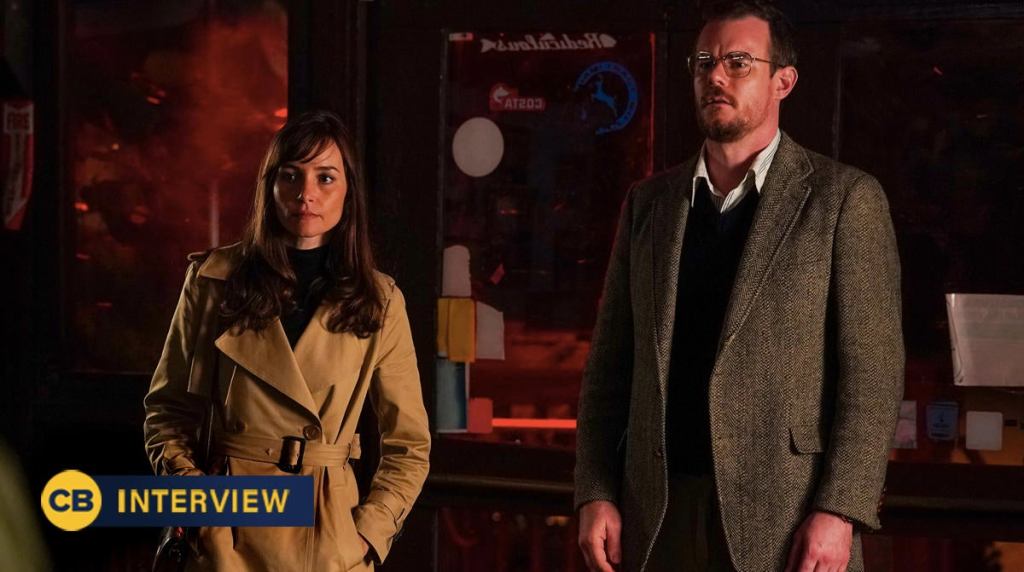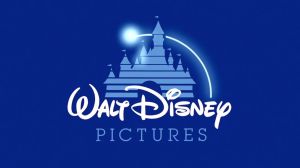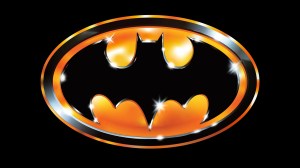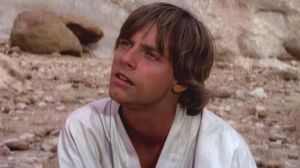In the late ’00s and early ’10s, the genre world saw a deviation from the expectations and limitations of standard horror fare, as independent filmmakers were emphasizing performances and dialogue to tell compelling stories as opposed to merely delivering buckets of blood. At the time, some fans loved how fresh these films felt, while other audiences dismissed them as “mumblegore,” likening them to the subgenre of indie films that feature little more than characters sitting around and talking. Actor Joe Swanberg took part in a number of these mumblegore films, though more recently starred in Offseason, which honors more traditional horror tropes from the ’70s and ’80s. Offseason lands in select theaters, On Demand, and on Digital HD on March 11th.
Videos by ComicBook.com
In the new film, “Upon receiving a mysterious letter that her mother’s grave site has been vandalized, Marie (Jocelin Donahue) quickly returns to the isolated offshore island where her late mother is buried. When she arrives, she discovers that the island is closing for the offseason with the bridges raised until Spring, leaving her stranded. One strange interaction with the local townspeople after another, Marie soon realizes that something is not quite right in this small town. She must unveil the mystery behind her mother’s troubled past in order to make it out alive.”
ComicBook.com caught up with Chicago native Swanberg to talk the transition from mumblegore into “elevated horror,” embracing genre tropes, and local pizza preferences.

ComicBook.com: I’m going to come in hot, going to come in controversial. Hope you don’t mind that right off the bat.
Joe Swanberg: Hey man, I love controversy. Bring it on.
What is the best pizza place in Chicago? We’re not talking like, “Oh, this is the place close to my house that’s pretty good.”
I love it. Yeah, I hear you.
We’re talking, family or friends come into town, where do you take them for something special?
I am unabashedly a Lou Malnati’s fan. It is my favorite. I have had them all multiple times, and that is where I go when I want big, fat, deep dish, delicious pizza.
And they have multiple locations, so if you’re out in the suburbs at IKEA, you can always drop in.
It’s a big, disgusting corporate chain, and I don’t care. Cancel me if you want to, baby. I’m going to Lou Malnati’s.
That’s going to be the headline. Joe Swanberg said, “Cancel me if you want to.”
Exactly, yeah. I’ll call you tomorrow. I’m like, “No! Make it stop. Take it down, take it down!”
Well, I’m glad we got that out of the way. Everyone was going to be asking it and wondering about it, so now we can actually get into a little bit more about the movie. Offseason is definitely very blatantly, very deliberately tapping into specific genre tropes. It’s very much a horror movie. It’s not necessarily trying to be nuanced or anything like that, but there’s this whole movement of “elevated horror,” everything’s elevated horror. I was thinking recently, “Isn’t that what they just used to call mumblegore a decade ago?”
Totally.
At the time, it was dismissed and almost made fun of, and obviously had a stupid name attached to it. As a genre fan, as a filmmaker yourself, what do you feel when you see Midsommar and Hereditary and Get Out be praised, what are your thoughts on trying to give these new terms to horror to try and make it feel more sophisticated?
Well, my first thought is everything is cyclical. We just find ourselves now back in the late ’60s and early ’70s, and back then you also get these really great directors, directors who cross genres or often make awards-type drama films, playing around and dabbling in the genre space, or what comes to be established as the genre space. But all of them have aspirations just to be filmmakers, and through the Roger Corman factory, you get a lot of filmmakers who begin their career with one or two genre films or horror films, and then immediately move on to studio comedies and dramas and spend the rest of their career in Hollywood.
I just think we’ve cycled back to a landscape that resembles that and that filmmakers, a lot of filmmakers recognize that genre or elevated genre or horror is a really cool and interesting pathway into transitioning. I would say recently, Damien Chazelle is a great example of that. If you look at his IMDb, he starts out messing around in the genre space and now, maybe he will make another horror film, but if he does, it will be instantly considered something much different from what he was doing at the beginning of his career, even though he’s the same person working in the same genre.
That’s a great point, because Whiplash, obviously, is a horror movie.
Totally. The same technical sophistication and chops.
You are a filmmaker yourself, but you’re also an actor and you’re a little bit more selective about the acting roles that you’ve been taking recently, as opposed to how much more frequently you’re writing or producing or directing. What was it about Offseason that got you excited to act in it?
A lot of things. I almost worked with [writer/director] Mickey [Keating] years ago on a film called Carnage Park. It was just as Drinking Buddies and a lot of other things were getting going, being released. I just found myself too busy on the directing side of things to carve out the time and go do that movie. I always felt that I had missed an opportunity, that I was excited about working with him. So when he called me back, I just dove in immediately.
I was up in Canada visiting Jason Reitman on the set of the Ghostbusters movie. I just, because I make low-budget mumblecore movies, have friends who are making gigantic studio movies. So when Adam Wingard was doing Godzilla, and when Jason was doing Ghostbusters, I was like, “Can I please just come? Like, is it okay? Can you just give me the badge I need or something? No one will know I’m there. I literally just want to watch.” And so, in both those instances, I just got to lurk and try and just see what a big movie like that even looks like.
But Mickey called me, I was up there visiting Jason and I just said, “Mickey, I’m in, I don’t even need to read the script. I don’t care what it is. I wish that we had gotten a chance to work together years ago. So I’m really happy you called me, I’ll do it.” And then he sent me the script and I read it and was really excited. But he was just a filmmaker that I wasn’t going to miss the chance [to work with] twice.
I’m sure you were originally in talks for the Pat Healy role, but I’m going to pretend it was the Ashley Bell role in Carnage Park.
I have to say, honestly, I have not seen Carnage Park and I don’t remember what the Pat Healy role is or anything. Maybe I’ll offend Mickey right now, if he looks at this interview, like, “Wait, Joe never watched Carnage Park?!”
That’s going to be the follow-up story. “Joe Swanberg says, ‘Cancel me, I dare you,’ and also ‘Carnage Park sucks, since I wasn’t in it.’”
“He told me, ‘Carnage Park sucks.’”
As soon as we learned that your character in You’re Next was named Drake, it immediately solidified how much of an assh-le he was going to be. In Offseason, I couldn’t help but notice, not that you’re an overt assh-le, but you’re not necessarily an ideal partner…
I totally agree. That is not a great relationship.
Was that how the character was written? Was that your own flare that you brought, to really lean into that? Did Mickey tell you, “I want you to play another assh-le?”
I always have fun pushing in the assh-le direction. Like, right up to the line, and also trying to make these characters, in some way, relatable or lovable, even if you end up rooting for their demise. But I don’t fully remember, because I have not read the script in a long time, but I will say this: nothing’s in a Mickey Keating movie that he doesn’t like or want there. He’s a very specific director. He has a real vision for how he wants the stuff. So I’m sure that it was written and pushed in that direction, but, also, I’m sure that I always gleefully and enjoyably want to take it even further. I love the opportunity to get to play the assh-le. It’s such a delicious, fun character.
You just get to spout off these former collaborators like, “Oh yeah, Adam Wingard is making King Kong and Simon Barrett is doing Face/Off.” These people you came up with are doing these giant properties and these giant franchises, does that at all appeal to you as a filmmaker? Is there a franchise or a property that you would love to get $200 million to go nuts in Or is your heart just in independent, original, inventive projects?
There is no property I’m interested in. Any preexisting character or world, I’m the type of fan that’s already annoyed that almost everything I’m being offered is a sequel, a prequel, a reboot, a reimagining. I’m so bored, I’m desperate for original content. As a filmmaker myself, moving to a property or doing a pre-existing IP or something is probably immediately off the table, just not interesting. But doing a big movie, a big original movie or something, I don’t know. I don’t have any strong feelings about it. It’s not like a super sexy thing for me right now. I’m not really trying to figure out a $100-million movie.
I’ve never even made… My movies are a couple-of-million dollar movies. I’m playing way, way, way in a much smaller space than that. And I like my space, and, coming up, it was always like the Coen brothers and other directors saying, “The best position you can be in is just to be small and invisible and the studio forgets you even there. Their attention is all focused on the bigger movies and then you just get to make your own weird little projects.” I think I still am attracted to that idea, living in the below-the-radar space.
Offseason lands in select theaters, On Demand, and on Digital HD on March 11th.
This interview has been edited for length and clarity. You can contact Patrick Cavanaugh directly on Twitter.








